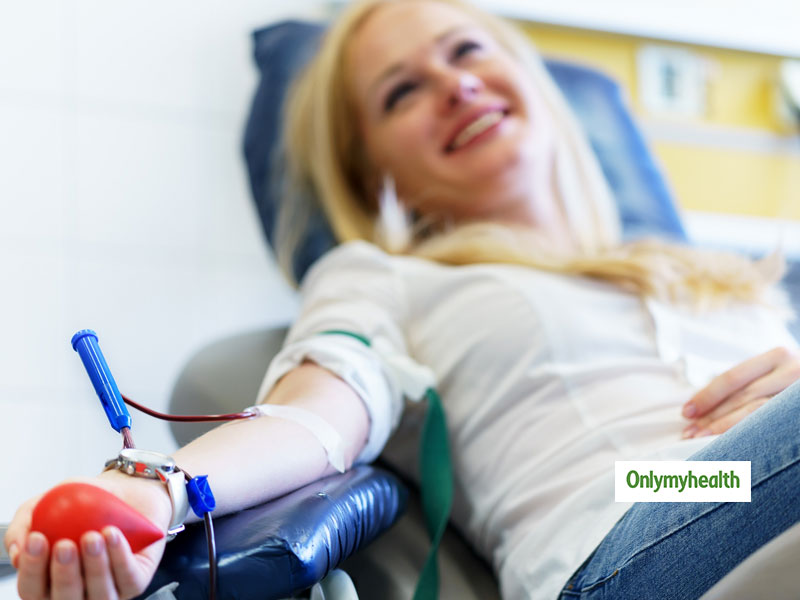
Donating blood can take literally and figuratively take a lot out of you. You can counter some of the after-effects of blood donation by priming yourself with nature’s best fatigue fighter, known as iron. After donating blood, you may feel some fatigue, and it is inevitable, though. However, it’s not the only reason to increase your iron consumption, and it also states: iron deficiency in the blood could affect your ability to donate.
Table of Content:-
Process of blood donation
- Before donation, your blood undergoes a screening which checks your haemoglobin levels. An adequate amount of haemoglobin in the blood helps transport oxygen to your body’s tissues. Just remember that if the screenings show your haemoglobin is too low, you will not be allowed to donate blood.
- Hence, eating correctly before and after your blood donation is necessary. It will ensure that you have an adequate amount of haemoglobin (in the blood) to donate, and you can prevent excessive fatigue after donation. Although the blood process only employs qualified individuals and verified practices, a very few in rare cases can expect dizziness, fatigue, and loss of consciousness right after donating blood. However, there is a way by which you can minimize these issues by keeping track of what you eat before and after donating blood.
- Yes, eating the right food before and after blood donation is essential. Therefore, it is significant to know what to eat before and after donating blood that can help you fill in the lost vitamin and iron.

Foods to eat before blood donation
Low-fat foods
It would be best if you had a low-fat meal before you go to donate blood. If you have a high-fat meal, it can obstruct the blood testing process as fat in the blood can make it almost impossible to test the blood for communicable diseases. If you wish to have breakfast before blood donation, you can have a small piece of fruit, or a bowl of low-fat milk is apt, but nothing too fatty is advisable.
Food enriched with Vitamin C
If you are scheduled for blood donation, you can have foods that are rich in Vitamin C as it helps your body to absorb iron. You can have orange, grape and juices of other citrus fruits to have vitamin C.
Also read: Health Benefits of Blood Donation
Foods to eat after blood donation
Foods with iron in it
Iron carries oxygen to your tissues, and without iron, your body fails to produce or maintain healthy red blood cells. And to sustain healthy body functions, your body must make new blood cells. Consumption of foods enriched in iron can give you enough iron to maintain the number of red blood cells. Foods like spinach, fish, red meat, poultry, raisins and beans etc. are high in iron. Apart from these, nuts and peanut butter also contain it. You can also have cereals that contain iron.
Foods containing folate
Your body uses folate, also known as B-9, folic acid or folacin, to manufacture new red blood cells. This helps to replace blood cells lost during donation. Foods that contain folate include liver, dried beans, asparagus and green, leafy vegetables like spinach, kale and collard greens. Orange juice is another source of folate. Fortified bread, cereals and rice also can contain this vitamin.

Riboflavin enriched foods
Dairy products such as milk, cheese and yoghurt are enriched in riboflavin. Also known as Vitamin B2, it is an essential component to generate red blood cells. Riboflavin will help your body to turn carbohydrate into energy. After donating blood, you may feel weak; the power from riboflavin can help you have the required strength. The foods that are enriched in riboflavin are eggs, leafy vegetables, nuts, asparagus, broccoli and vitamin-fortified cereals. You can also have dairy products like yoghurt and milk to suffice the need for riboflavin.
Also read: World Blood Donor Day 2019: Theme, Significance and Importance of ‘Blood For All’
Foods that have Vitamin B-6
Foods that have Vitamin B – 6 can be beneficial for you in many ways after you donate blood. When you donate blood, your body requires vitamin to generate healthy blood cells and B – 6 helps the body to break down proteins as protein is enriched in many nutrients that you need after you give blood. Potatoes, seeds, nuts, eggs red meat, spinach and bananas are some of the foods that are a rich source of vitamin B6.
You will need fluids
When you are done with blood donation, it is for sure that your body will require energy and eating a meal rich in the components as mentioned earlier can help you regenerate the lost blood cells. However, it would be best if you also had fluids with the food you consume. Your body will readjust by drinking fluids 24 to 48 hours donating blood. It would be best if you didn't consume alcohol instead increase your water consumption.
Read more articles on Health
How we keep this article up to date:
We work with experts and keep a close eye on the latest in health and wellness. Whenever there is a new research or helpful information, we update our articles with accurate and useful advice.
Current Version